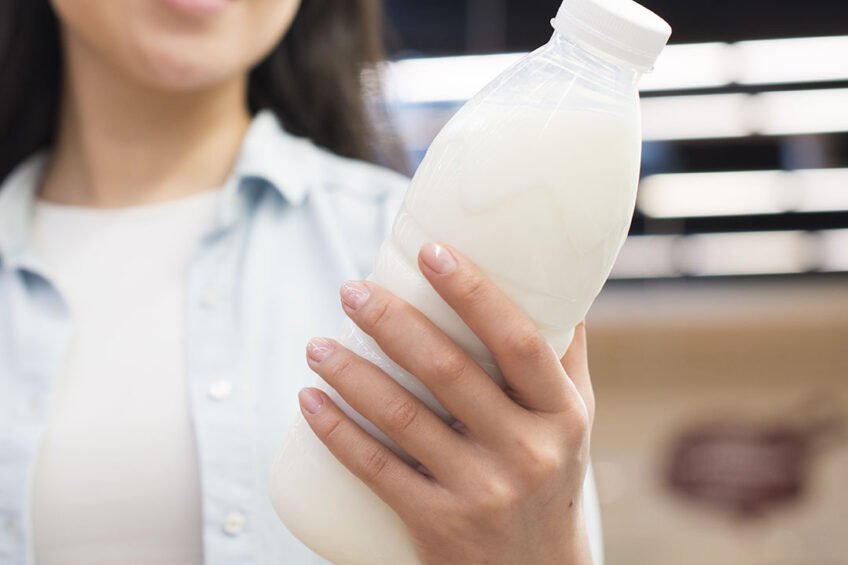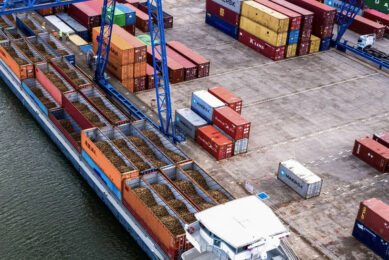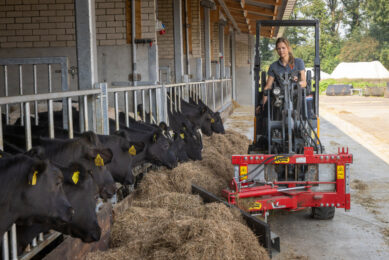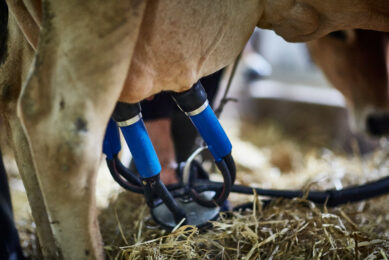UK retailer milk price cut won’t help dairy farmers

A number of UK supermarkets have cut their retail milk prices in order to reduce the costs of consumer shopping, but this won’t help dairy farmer incomes in the long term.
Milk is quite often used as a loss leader within retail outlets to entice consumers back to stores, but this does have an adverse effect on prices received by farmers, eventually.
During the latest price reductions, supermarkets Tesco, Sainsbury’s, Lidl, Aldi and Asda have all reduced the price of milk by around 5p per pint.
However, most of them have said this reduction will not affect the price they pay to farmers, a sentiment many in the dairy industry disagree with.
“Our model gives farmers security “
In Tesco’s case, its chief executive, Jason Tarry, said: “We know that customers are still having to budget carefully, so we’re pleased to be able to reduce prices where we can, and also give them a little extra help by locking the prices of more than a thousand everyday products.
“Milk is a key everyday staple for so many families. We’ve seen some cost price deflation for milk across the market in recent times, and we want to take this opportunity to pass that reduction on to customers.
“This will not affect the price we pay our farmers. Our Tesco Sustainable Dairy Group was set up to ensure that farmers across the UK get a fair, independently-set price for the milk they produce for us.
“Our model gives farmers security when the market price for milk falls below the cost of production and reflects our long-standing commitment to our farmers,” he said.
However, dairy farmers have been quick to point out while reductions in the cost of living are welcome, their costs of production have not eased.
National Farmers Union Scotland (NFUS) milk committee chair, Bruce Mackie, himself a dairy farmer from Aberdeenshire, said: “Cuts to prices on shop shelves are in stark contrast to input costs for dairy farmers which remain historically high.
Milk production
“The price cuts for consumers will be welcome, given the cost of living crisis, but the cost of producing milk has not fallen in line. The price of dairy feed for cattle is 30% higher than this time last year and the price of soya alone is more than 22% higher than 2022,” he said.
Recent fears that a drop in milk production would destabilise the market have not come to fruition as good winter feed stocks helped boost supply.
Mackie added: “Production concerns have also eased in the past month. Additional milk production in February, probably driven by excellent silage made in the heat of last summer, did put pressure on the market and has been a factor in the 20% reduction in farmgate prices.
“However, a cold March has corrected milk production such that volumes are neck and neck with last year and indeed below forecast.
“It should be noted already by other parts of the chain that this is a dry spring which may well restrict volumes going forward. It is important that the industry is financially sustainable if milk supplies are to be maintained so a return to price volatility is in no one’s interests,” he said.
A lack of fairness
A lack of fairness in the dairy supply chain was also highlighted by the NFUS, whose dairy policy manager, Tracey Roan, said: “While retailers may claim that those supplying them with fresh milk won’t be affected by price cuts on the shop shelf, it highlights the lack of fairness in the supply chain and the ability of retailers to target the weakest part of the chain first.
“While these price cuts are on fresh milk, they drive value out of the whole dairy chain and make securing a sustainable and fair milk price on all dairy products more difficult to achieve.
“That runs the risk of undermining future supplies. While farmgate prices have fallen by around 10p per litre in recent months, costs of production have not fallen to the same degree and are still estimated at 43.5p per litre.
“It is disappointing that supermarkets have opted to reduce the price of milk when the biggest price increases seen on shop shelves were on imported food items, that are often more highly processed and unsustainably produced than British milk and dairy produce.
“Given the nutritional benefits of milk and dairy produce and the invaluable contribution they make to healthy, balanced diets, they continue to represent outstanding value for consumers.
“It is in everyone’s interests – retailers, consumers, and farmers – that fair returns are delivered across all parts of the dairy supply chain,” she said.
Join 13,000+ subscribers
Subscribe to our newsletter to stay updated about all the need-to-know content in the dairy sector, two times a week.










